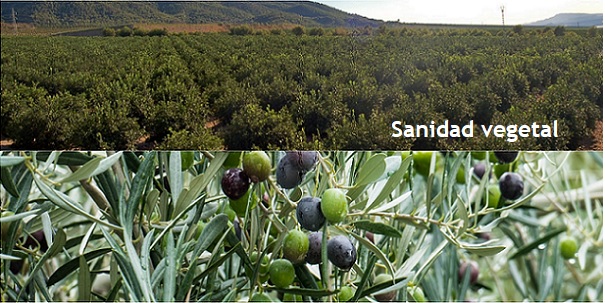
05 de June de 2020
The National Rural Network organized a virtual meeting that brought together stakeholders in the field of agricultural plant health to exchange innovative projects in the fight against diseases and pests in the sector.
05/06/2020
This meeting is the fourth in a series of experience-sharing sessions promoted by the National Rural Network to highlight and disseminate the work of the Operational Groups and innovative projects. This time, problems in the area of agricultural plant health were addressed from an innovative perspective. Specifically, this meeting brought together stakeholders whose work focuses on soil health and the treatment and control of diseases and pests in crops of various species, such as grapevines, citrus fruits, pistachios, and olives.
Boosting plant health with an innovative approach
Operational Groups (OG) are groups of stakeholders from different sectors, in this case linked to the agricultural sector. These groups come from, among others, R&D&I training and advisory groups, technology centers, and non-profit institutions. They join forces to develop innovative projects. Their activities are subsidized by the EAFRD through Measure 16 of the Rural Development Programs (RDP). Focus Groups, associations of multidisciplinary stakeholders, also participated in this meeting. These groups meet temporarily to discuss and share knowledge and experiences on a wide range of topics, focusing on innovation. The Ministry of Agriculture, Fisheries, and Food (MAPA) presented the evolution of these innovation measures and their future prospects.
The work being carried out by MAPA in the field of plant health was also presented, as well as examples of potential contributions from innovation projects to its work.
Sharing knowledge and practices
Nine Operational Groups, innovative projects (including H2020), and Focus Groups from regional, national, and European levels participated in the meeting. Participants were grouped into thematic rooms to exchange ideas, discuss progress on work, lessons learned, and challenges facing the sector, as well as share concerns about pests and diseases in the agricultural sector.
Room 1: Crop and Soil Health
Groups/Projects : CHAMPIHEALTH: new cultivation methods that reduce mushroom cultivation diseases , XF-ACTORRS and Best 4Soil .
Work and conclusions : consensus on the need to promote research into field detection of pests and diseases and also strengthen training in the sector, including the participation of farmers who contribute their experience. The most important aspects of disease and pest control are biological control, crop rotation, and soil care.
Room 2: Control and treatment of fruit trees
Groups/projects : New strategies to combat the main pests of pistachio trees in organic farming, Technological Association of Agricultural Innovation of the Region of Murcia and Focus Group on Diseases and Pests in Olive Trees .
Work and conclusions : There is a need to establish experimental and demonstration networks in different locations for practical adaptation to the field . Woody crops should be supported for their contribution to sustainable agriculture , since they have the potential to increase functional biodiversity and their combination with plant cover. Furthermore, there is some confusion in projects developed by stakeholder groups regarding the processes for disseminating results, ownership of the developed patent, etc.
Room 3: Control and treatment in viticulture
Groups/projects : Adaptation of a predictive model for the control and management of the grape berry moth ( Lobesiabotrana ) in the DO La Mancha, based on the correlation between climatic factors and the development of different generations, GOPHYTOVID and Focal Group on Diseases and Pests in Viticulture.
Work and conclusions : the importance of generating knowledge through research and accessible tools for the wine sector , primarily in predicting the appearance of diseases and pests in vines. This would facilitate the more precise application of phytosanitary products , streamlining their use to achieve more sustainable agricultural activity, in line with European regulations.
This exchange on agricultural plant health is part of a series of seminars on Operational Groups and Innovative Projects that the RRN is promoting to give visibility to the innovations developed. All information can be found on the website , as well as on the Social Networks of the National Rural Network.











